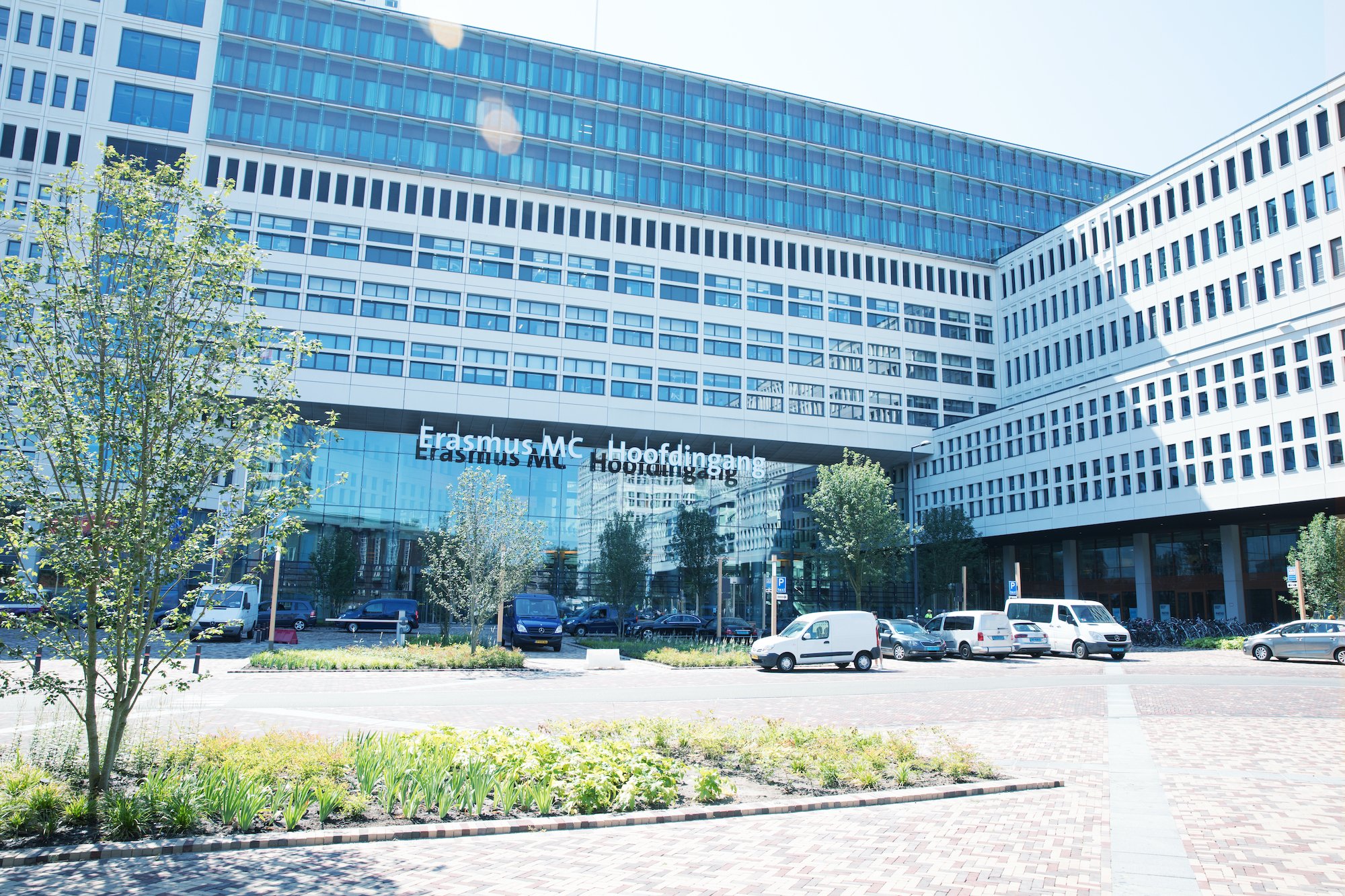Postdoc on live-cell imaging approaches to understand DNA damage-induced transcription stress
Postdoc on live-cell imaging approaches to understand DNA damage-induced transcription stress
You cannot apply for this job anymore (deadline was 9 May 2022).
Browse the current job offers or choose an item in the top navigation above.
Job description
Correct transcription by RNA polymerase II (Pol II) to generate RNA is crucial for proper cell function. However, transcription is continuously compromised by DNA damage. Transcription-blocking DNA damage causes cellular dysfunction and cell death, eventually resulting in DNA damage-induced aging and genome instability. Cells counteract these deleterious effects by transcription-coupled repair (TCR), which specifically removes DNA damage thereby safeguarding transcription (Lans, Nature reviews Molecular Cell Biology, 2019). Our labs have identified several important factors in this repair pathway (Schwertman, Nature Genetics, 2012; Dinant, Molecular Cell, 2013; Tresini, Nature, 2015; Geijer Nature Cell Biology, 2021; van Toorn, Mol. Cell, 2022), uncovered that DNA damage-induced transcription-stress is an important cause of age-related diseases (Schumacher, Nature, 2021) and identified mechanisms that could counteract DNA-damage induced aging (Vermeij, Nature, 2016).
In this project, the Postdoc will study the cellular responses to transcription-blocking DNA damage using state-of-the-art live cell imaging approaches. The applicant will use and further develop fluorescent knock-in cell lines expressing Pol II (Steurer, PNAS, 2018) and TC-NER factors (Geijer Nature Cell Biology, 2021) to study the effects of DNA damage on transcription and uncover the molecular mechanism of TCR. These studies will include the use of cellular differentiation models to uncover tissue-specific responses (e.g. brain, muscle, liver) to DNA damage that blocks transcription, and single-molecule analysis to provide in-depth insight in the molecular mechanism how transcription-blocking DNA damage is repaired. Together this will result in detailed insights in how DNA damage interferes with transcription and will lead to a better understanding of the underlying mechanisms of the aging process.
In this project, the Postdoc will study the cellular responses to transcription-blocking DNA damage using state-of-the-art live cell imaging approaches. The applicant will use and further develop fluorescent knock-in cell lines expressing Pol II (Steurer, PNAS, 2018) and TC-NER factors (Geijer Nature Cell Biology, 2021) to study the effects of DNA damage on transcription and uncover the molecular mechanism of TCR. These studies will include the use of cellular differentiation models to uncover tissue-specific responses (e.g. brain, muscle, liver) to DNA damage that blocks transcription, and single-molecule analysis to provide in-depth insight in the molecular mechanism how transcription-blocking DNA damage is repaired. Together this will result in detailed insights in how DNA damage interferes with transcription and will lead to a better understanding of the underlying mechanisms of the aging process.
Specifications
- max. 36 hours per week
- €2986—€4707 per month
- Rotterdam View on Google Maps
Requirements
- We are looking for a highly motivated candidate with a PhD degree in a relevant discipline (e.g. Molecular/ Cell Biology, Biomedical Sciences, Molecular Sciences) and is able to think independently but also functions well in an international team.
- The candidate needs to have strong intellectual and experimental skills, in addition to a solid background in cell biology. Experience with the basal transcription process, DNA damage response or with live cell imaging is an advantage but not essential.
- This project may involve working with cellular differentiation models (e.g. iPSC) or laboratory animals (mice), and therefore expertise iPSC differentiation or having followed courses on handling of Laboratory Animals (e.g. Dutch Art.9 Experiments on Animals Act, of Felasa accredited) will be an advantage.
- Furthermore, a strong command of (scientific) English in speech and writing is essential
Conditions of employment
- The gross monthly salary amounts a maximum of € 4.707,- (scale 10), depending on your level of education and relevant experience and based on a full-time working week of 36 hours.
- This is a 3 year project. The initial contract will be for 1 year, which, if satisfactorily, will be extended with 2 additional years
Employer
Erasmus MC
The Department of Molecular Genetics has a long history and strong world-wide reputation in understanding the DNA damage responses at the molecular, cellular and physiological level. The department consists of a vibrant and international group of more than 80 researchers working on various aspects of DNA damage, DNA repair and other DNA damage related responses.This project will be a joint project between the labs of Prof. J. Marteijn, Prof. J. Hoeijmakers and Prof. W. Vermeulen, in which we study the molecular mechanisms on how cells deal with DNA damage that interferes with transcription, using a multidisciplinary approach including molecular and cell biological and genomic and transcriptomic approaches. Our labs work in a highly collaborative manner with a strong focus on state-of-the-art live-cell imaging, genetic and proteomic tools. Our group acts internationally at the forefront of DNA damage and transcription stress and offers a dynamic, challenging, and cooperative research environment.
Erasmus MC stands for a healthy population and excellence in healthcare. By conducting groundbreaking work, we aim to push boundaries through leading the way in research, education and healthcare to improve and renew the healthcare of today and the public health of tomorrow. To stimulate research, the Erasmus MC provides access to the latest equipment and techniques in a state-of-the-art environment.
Specifications
- Postdoc
- Health
- max. 36 hours per week
- €2986—€4707 per month
- University graduate
- 16.05.22.TBW-P928768-1
:fill(white)/logos/emc-en-wide.png)
